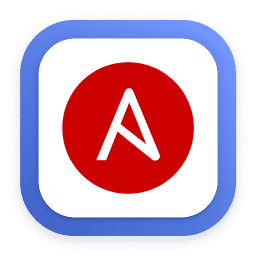Red Hat Ansible Automation
Preview
When you integrate your Dynatrace environment with Red Hat Ansible Automation controller using Red Hat Ansible Connector  , you can automatically start job templates based on your monitoring data.
, you can automatically start job templates based on your monitoring data.
Configure the integration
To use Red Hat Ansible workflow actions, you first need to install Red Hat Ansible Connector  from Dynatrace Hub.
from Dynatrace Hub.
- In Dynatrace Hub
 , select Red Hat Ansible.
, select Red Hat Ansible. - Select Install and then follow the process below to grant permissions, get an Ansible API key, and configure the connection.

Grant permissions to Workflows

Create Red Hat Ansible API key

Configure Red Hat Ansible Automation connection

Configure Red Hat Ansible Automation connection
 Grant permissions to Workflows
Grant permissions to Workflows
Some permissions are required by Workflows to run actions on your behalf.
To fine-tune permissions granted to Workflows
- Go to Workflows and select Settings > Authorization settings.
- Select the following permissions besides the general Workflows permission.
app-settings:objects:readstate:app-states:readstate:app-states:writestate:app-states:delete
For more on general Workflows user permissions, see User permissions for workflows.
 Create Red Hat Ansible API key
Create Red Hat Ansible API key
To interact with Red Hat Ansible Automation Controller, you need an API key. To learn how to obtain it, see the Red Hat official documentation.
 Configure Red Hat Ansible connection
Configure Red Hat Ansible connection
You need a configured connection for of your Red Hat Automation environments.
To configure a connection for Red Hat Ansible Automation Controller
- Go to Settings and select Connections > Connectors > Red Hat Ansible.
- Select the tab Automation Controller.
- Select
Connection.
- Provide a meaningful name for your connection.
- Provide the Red Hat Ansible API URL. For example,
http://your-ansible-host.com/api/v2(must include theapi/v2, no trailing slash). - Provide your Red Hat Ansible API key.
- Select Create.
 Configure EdgeConnect
Configure EdgeConnect
If you connect to a self-hosted Red Hat Ansible Automation Controller or AWX instance, you might require EdgeConnect to establish a connection behind your firewall.
To configure an EdgeConnect connection
- Go to EdgeConnect Management.
- Select EdgeConnect.
- Enter Name for your EdgeConnect.
- Enter Host pattern which is a URL.
- Select Create.
You have a new EdgeConnect connection.
Available actions
The following workflow actions are available for the Red Hat Ansible Automation integration. Each action corresponds to an endpoint of the Red Hat Ansible API. For details on endpoints, see the Ansible Tower API Reference Guide.
Action
Description
Red Hat Ansible API endpoint
Launch job template
Launch a job template on Red Hat Ansible
POST /api/v2/job_templates/{id}/launch/
Launch a Job Template
List job status
List job status on Red Hat Ansible
GET /api/v2/jobs/{id}/
Retrieve a Job Host Summary
Relaunch job
Relaunch a job on Red Hat Ansible
POST /api/v2/jobs/{id}/relaunch/
Relaunch a Job
Launch a job template
To launch a job template, you need to provide the information listed below.
For details on the parameters, see the Ansible Tower API Reference Guide (/api/v2/job_templates/{id}/launch/ "Launch a Job Template").
To create a workflow that launches a job template
- Go to Workflows
 and select
and select to create a new workflow.
- In the Choose trigger panel, select the trigger best suited to your needs.
- On the trigger node, select
to browse available actions.
- On one of the information-extracting nodes, select
, search for
Ansible, and select Launch job template. - On each of the remaining information-extracting nodes, select
and drag the line to the Launch job template action.
- In the Launch job template action, select the connection to your Red Hat Ansible Automation Controller.
- Configure the input fields as needed. To learn how to use the output of information-extracting notes, see Expression reference.
- To test your workflow, select Run.
Troubleshooting
The following are solutions to problems some people have.